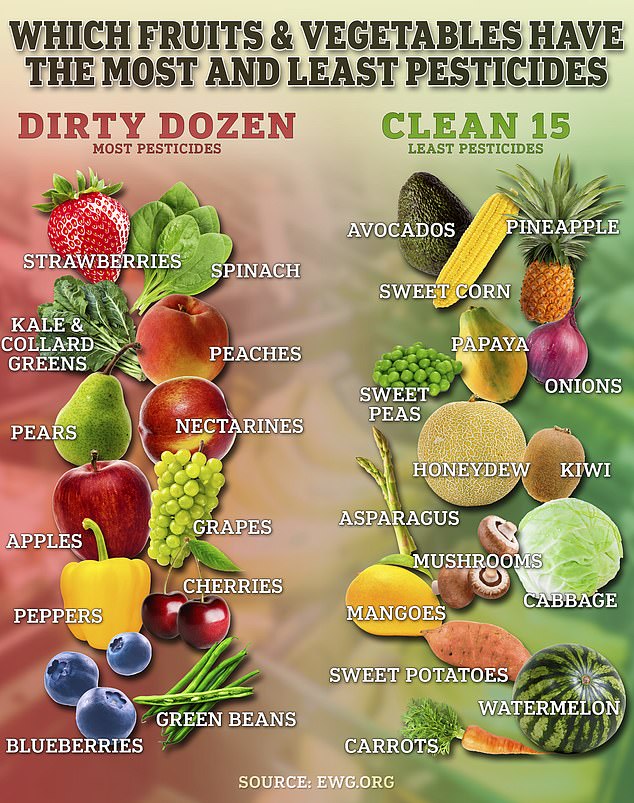The common herbicide used on broccoli and onions is BANNED because it is harmful to the fetus
Federal officials have banned a widely used weedkiller after it has been linked to developmental problems in unborn babies.
The Environmental Protection Agency (EPA) issued an emergency order on Tuesday suspending all uses of the herbicide dimethyl tetrachloroterephthalate, better known as DCPA or Dacthal.
The weedkiller, which is commonly used on crops such as broccoli, Brussels sprouts, cabbage and onions, has been linked to several health effects in fetuses, including low birth weight, lower IQ and impaired motor skills, the agency said.
However, it is generally not available in regular stores and is mainly used in industrial settings.
Dimethyltetrachloroterephthalate, better known as DCPA or Dacthal, is widely used on crops such as broccoli, Brussels sprouts and onions

A recent report from the EWG found that more than 90 percent of samples of strawberries, apples, cherries, spinach, nectarines and grapes contained at least two pesticides
The EPA estimates that pregnant women who handle products containing trace amounts of DCPA are exposed to four to 20 times more of the pesticide than the agency considers safe for fetuses.
The ban comes weeks after a shocking study claimed that pesticide use is as dangerous as smoking and has been linked to a 150 percent increase in cancer cases in areas like the Midwest.
Michal Freedhoff, assistant director of the EPA’s Office of Chemical Safety, said, “DCPA is so dangerous that it should be removed from the market immediately.”
“In this case, pregnant women who are not even aware they have been exposed may be giving birth to babies who will experience irreversible, lifelong health problems.”
The agency said the ban follows years of “unprecedented efforts” to get DCPA’s manufacturer, California-based AMVAC Chemical Corporation, to provide data on the pesticide’s health risks.
However, if the manufacturer challenges the ban, it could be years before DCPA products are completely removed from shelves.
Mily Treviño Sauceda, director of Alianza Nacional de Campesinas, also known as the National Alliance of Farm Workers’ Women, called the decision “historic.”
“We know all too well the harm pesticides, including dimethyl tetrachloroterephthalate, can do to our bodies and communities,” she said.
“This emergency decision is a great first step, and we hope it will be the next step in a series of other actions aimed at listening to farmworkers, protecting our reproductive health, and keeping our families safe.”
Other groups, however, criticized the EPA for not taking action sooner. Alexis Temkin, senior toxicologist at the watchdog Environmental Working Group, told The New York Times: ‘EPA’s decision to finally suspend DCPA is welcome news, but it is long overdue.’
‘EWG and other public health advocates have warned for years about the serious risks the weedkiller poses to farmworkers, pregnant women and other vulnerable populations.’
For example, a 2019 study from the University of California, Berkeley found that more than half of adolescent females from farmworker communities in the Salinas Valley area of California had been exposed to DCPA.
In 2009, the use of DCPA on agricultural crops was banned by the European Union.
